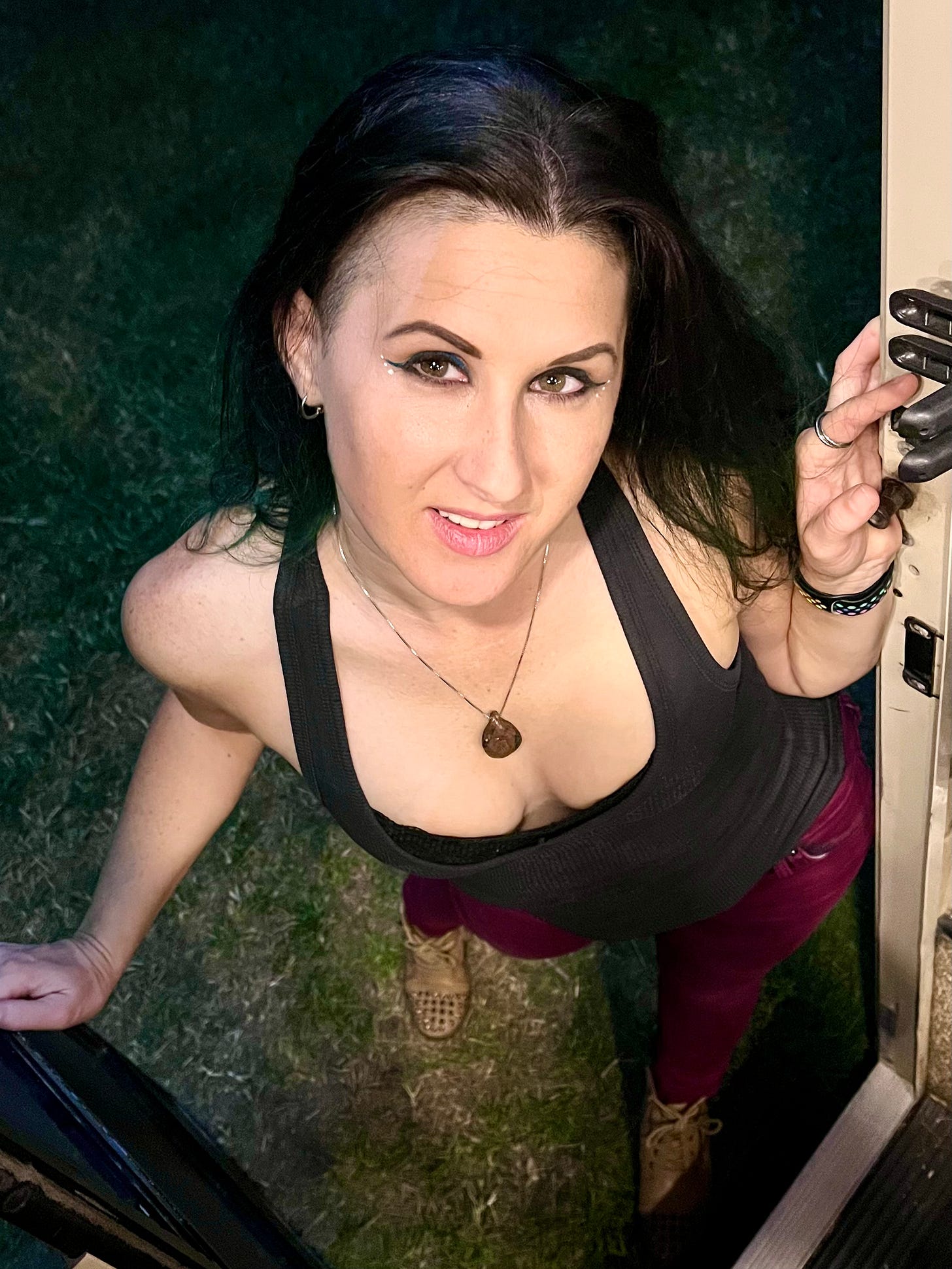I'm sorry to everyone I ghosted when I assumed you hated me.
I'm afraid to reach out because every time I do so, I believe I will annoy the person I'm contacting—even if they've given me no indications that I irritate them.
I do something to people from time to time. I don't mean to, but my mind tricks me, so I do it anyway.
Welcome back to another Founding Member Friday!
Twice each month on Friday (sometimes on Thursdays or Saturdays), I put out an exclusive post like this one (often on a more intimate and personal topic OR featuring some of the training materials I’m teaching) that will be brought to you by and for our Founding Members.
The first part of this post is always FREE to everyone on Substack, and the ending is ONLY available to our Founding Members (as thanks for the extra support they give to make this blog possible).
At the time I am scheduling this post, we have thirty one Founding Members!
I won’t put them on the spot today, but you know who you are. I can’t thank you enough for your support.
I ghost people.
I disappear and drop contact, leaving people feeling like I don't like or care about them.
There are two main reasons I do this:
I'm hyperfocused on something and have dropped contact with EVERYONE while I deep-dive (except David, who lives with me)—which happens a lot.
My brain told me I was unlikable, and I believed it.
The first bullet point is one way that being Autistic makes relationships difficult for me.
If I were to force myself to socialize while my brain is focused elsewhere, I would be distracted and disengaged, which would make people feel like I don't want to spend time with them.
If I don't force myself to socialize, people will feel as if I don't want to spend time with them.
I can't win, really.
Other people often expect more time and attention than I can give them, so if they don't see or hear from me for a few months, it seems short to me (especially if I've been in a focused tunnel), but other people see this as neglecting the relationship.
The second bullet point is one way that the trauma I've experienced from a young age (as an Autistic Person in a cruel world) has impacted my sense of self-worth and self-perception, and my relationships with other people (preventing me from starting new relationships).
When people try to start a relationship with me I am flooded with panic, and doubt over their motives… will they hurt me?
Deep down, I am afraid—afraid I'm unlovable, afraid I can't trust my own instincts about people, and afraid of getting hurt.
My fear makes starting new relationships hard because it triggers the raw and unhealed parts of me that fear for my physical and mental safety, pushing me away from kind people who care about me (by convincing me that people don't care as much as I think they do, that I'm a burden, and that people are better off without me, or that if I let people get close, I will get hurt again).
The fear and doubt are often bigger and stronger than the longing for connection and friendship. The need for safety usually overrides the need to connect, leaving me isolated and alone.
I'm afraid to reach out because every time I do so, I believe I will annoy the person I'm contacting—even if they've given me no indications that I irritate them.
When I disappear, people often assume I disappear because of them, but I disappear because of me.
I wasn't always afraid. I didn't always assume I was annoying or that people wanted me to leave them alone but weren't telling me.
When I was a kid, when I was still small and cute, I would run up to strangers and talk to them, info-dumping about my favorite topics to anyone who would listen.
As I got older, something changed.
My rambling wasn't cute anymore. Nobody wanted to hear about dogs or my favorite dinosaurs.
Sometimes, people would be "nice" to me by pretending they cared about what I had to say, but I would have preferred honesty - for them to let me know they weren't interested (because I had no idea).
As I grew older and began noticing people's fake interests in me, it ate at me, making me wonder if anyone actually cared about listening to what I had to say.
Some people were really blunt about how they felt I was annoying or not good enough in various contexts. This got worse during puberty because the other kids were quick to point out anything they felt was "odd," "childish," or "annoying" - many things I did apparently fit into these categories.
After years of being told I was "too much" or "not enough" over and over again, these lies (though I know they are not logical) led me to adopt similar beliefs about myself and my worth.
A part of me really believes that I am too much and not enough all at the same time.
Like too many NeuroDivergent People, this society had for many years tricked me into believing that I was a broken, inferior person - when I did not know I was NeuroDivergent.
Learning the truth about my brain (that I'm multiply NeuroDivergent) has helped me to realize I am not broken - just poorly understood and poorly supported. However, this logical realization doesn't undo a lifetime of conditioning and trauma from abuse that happened to me when I didn't know my worth.






